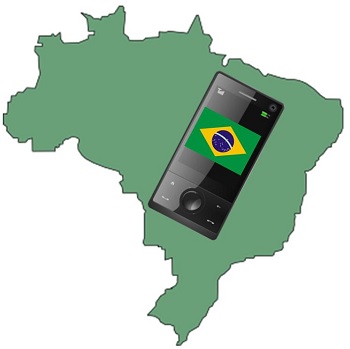These officers will be armed with facial recognition software in their wearable technology.
At the same time that the FBI in the United States is boosting its database for facial recognition and doctors in a growing number of countries around the world are using Google Glass in emergency and operating rooms, police in Dubai are getting their chance to test out this wearable technology.
Some officers in Dubai will be equipped with the augmented reality glasses to help to spot criminals.
By wearing Google Glass and using it for facial recognition, the hope is that Dubai police will be able to spot and identify wanted criminals. According to a spokesperson for the Dubai police, the software that will be used in this wearable technology will be custom made and will give each device the opportunity to sync with a central database of images of faces. This way, if police officers come across wanted criminals, they will be alerted by the wearables display.
The Google Glass program will begin with a pilot phase in which the devices will be worn for a specific function.
The pilot phase for using this augmented reality based wearable technology will have officers using the devices to track traffic violations as well as to be able to identify offending vehicles. If that phase goes well, then the mobile devices will then be distributed to detectives who will begin using it for its actual facial recognition program.
It makes sense that the police in Dubai want to make sure that the device can bring them the benefits that they are hoping to receive, as these gadgets do not come with an inexpensive price tag. In this deal, the Dubai police will pay $1,500 each for the devices. While that may be overwhelming for the majority of police departments around the world, Dubai is known for maintaining a luxury image that extends to its law enforcement.
In fact, the Google Glass price is only a tiny sliver of the cost of the $400,000 Lamborghinis that are driven by the officers in that city. Clearly, price is not always a deciding factor when it comes to the choices made in that city.
According to a recent announcement among top industry players, Brazil isn’t reaching its full m-commerce potential.
Some of the top players in the mobile commerce industry in Brazil have now revealed that this channel is being held back by limited profit margins and unstable broadband service in the country for medium and small sized retailers.
Moreover, there is also an overall lacking in terms of the awareness of the potential of m-commerce in this sector.
This, according to the primary mobile commerce complaints that were brought up during the Mobile+ forum which held panel discussions in São Paulo. Among the top problems that were identified during these discussions were the low profit margins that could be expected by retailers who participated in promotions such as “deal of the day” strategies. According to the CEO of the Kekanto city guide service, Fernando Okumura, “Sometimes the price of the ticket you can charge from a small retailer is not enough to be profitable.”
This shows that it is very difficult for smaller businesses to keep up with the requirements of mobile commerce.
 The issue isn’t necessarily with the methods that are available. Instead, it is in the understanding of the m-commerce channel, as a whole. For example, it was pointed out that it seems that small retailers may not be realizing that these daily deal coupons are designed to be used as an opportunity to advertise to a vast audience, as opposed to actually being an opportunity to profit from that specific sale.
The issue isn’t necessarily with the methods that are available. Instead, it is in the understanding of the m-commerce channel, as a whole. For example, it was pointed out that it seems that small retailers may not be realizing that these daily deal coupons are designed to be used as an opportunity to advertise to a vast audience, as opposed to actually being an opportunity to profit from that specific sale.
For example, many businesses use daily deal smartphone marketing coupons to get consumers in through the doors of their businesses. While they may not profit on the specific sale associated with the coupon, those same consumers may purchase something else while they are there, or they may learn about the businesses and return again another time, becoming a regular shopper.
Therefore, while this mobile commerce technique should be considered to be an advertising expense, it is being misinterpreted by some businesses and their opportunity is, therefore, being lost. This illustrates a clear need for greater education of businesses with regards to the use of mobile marketing and shopping offers and the way that smartphones can generate greater sales in-store.

 The issue isn’t necessarily with the methods that are available. Instead, it is in the understanding of the m-commerce channel, as a whole. For example, it was pointed out that it seems that small retailers may not be realizing that these daily deal coupons are designed to be used as an opportunity to advertise to a vast audience, as opposed to actually being an opportunity to profit from that specific sale.
The issue isn’t necessarily with the methods that are available. Instead, it is in the understanding of the m-commerce channel, as a whole. For example, it was pointed out that it seems that small retailers may not be realizing that these daily deal coupons are designed to be used as an opportunity to advertise to a vast audience, as opposed to actually being an opportunity to profit from that specific sale.